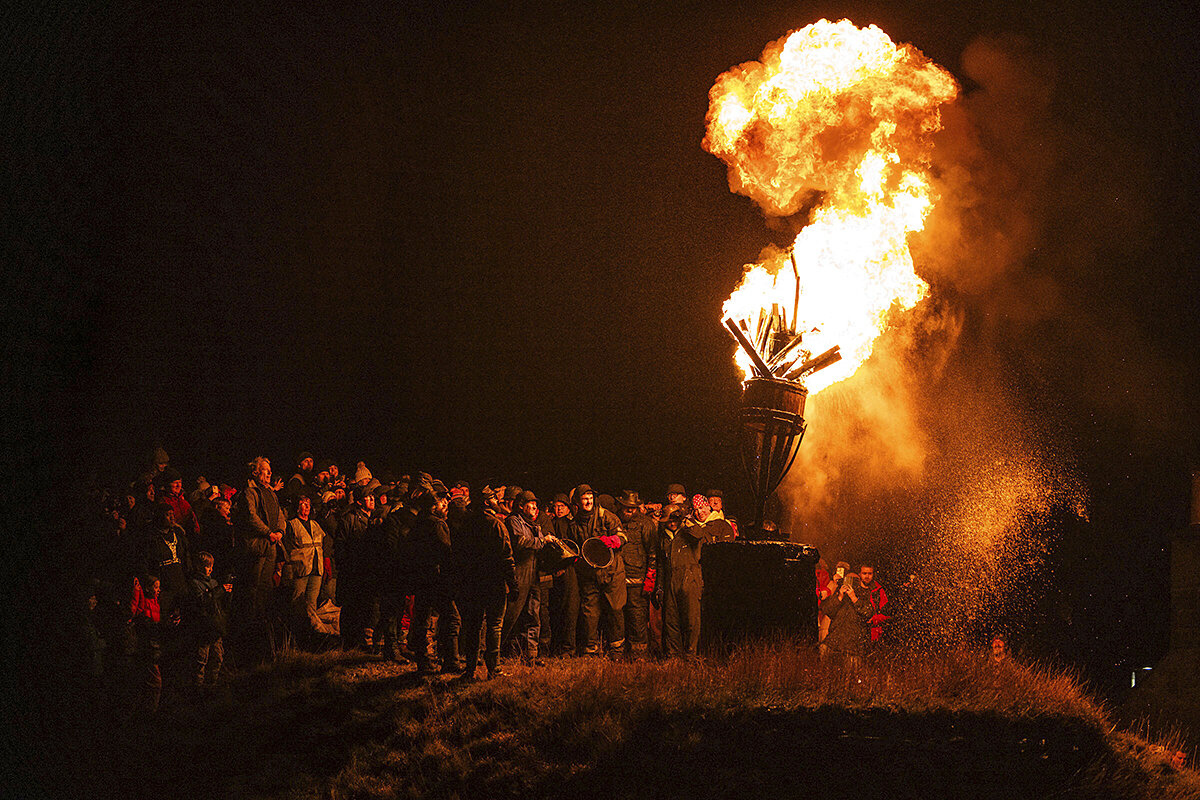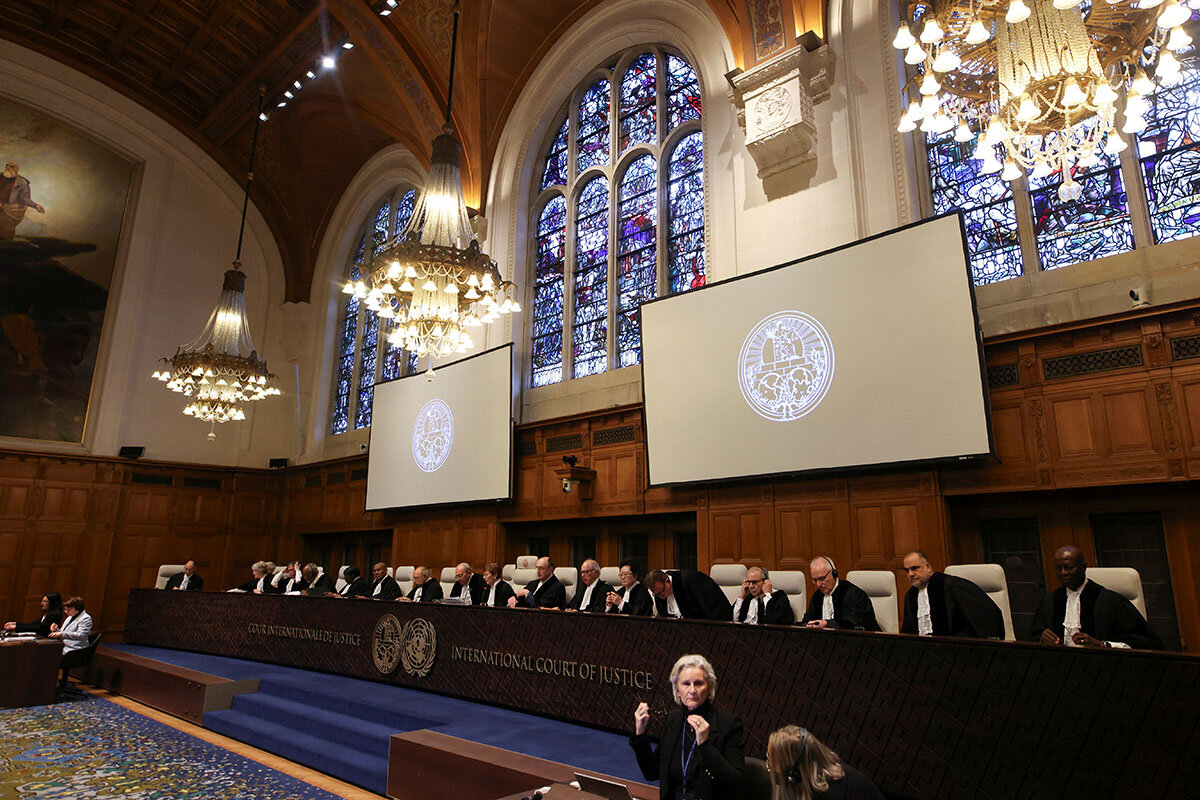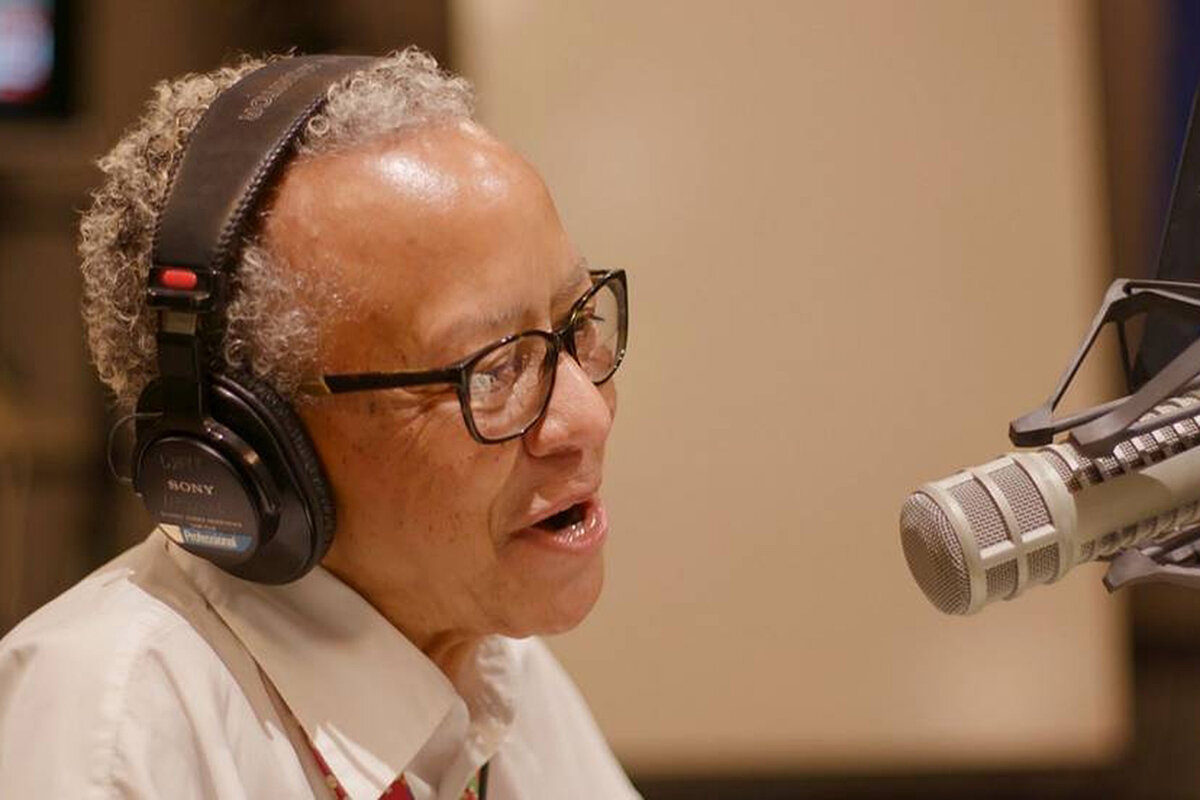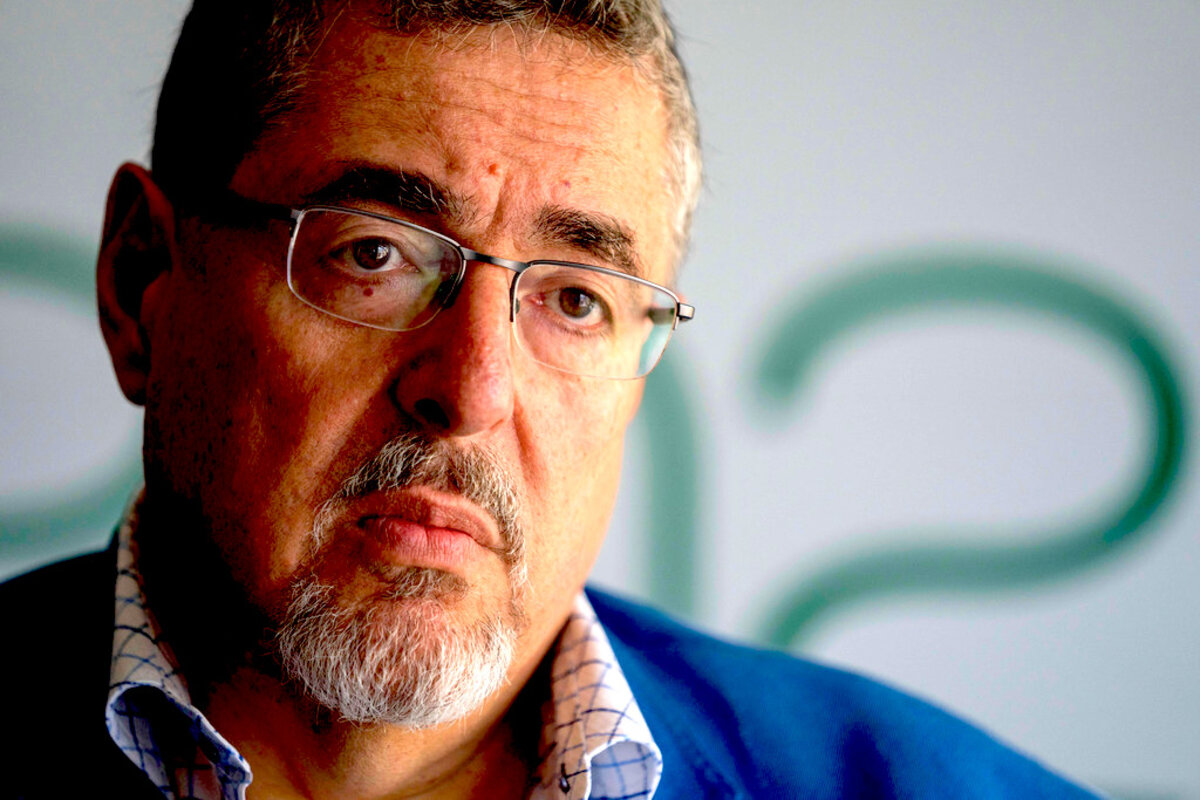During the Trump era the Republican Party has transformed, with its politics now dominated by non-college-educated voters. That has big implications for this year’s election.

Why is Christian Science in our name?
Our name is about honesty. The Monitor is owned by The Christian Science Church, and we’ve always been transparent about that.
The Church publishes the Monitor because it sees good journalism as vital to progress in the world. Since 1908, we’ve aimed “to injure no man, but to bless all mankind,” as our founder, Mary Baker Eddy, put it.
Here, you’ll find award-winning journalism not driven by commercial influences – a news organization that takes seriously its mission to uplift the world by seeking solutions and finding reasons for credible hope.
Explore values journalism About usMonitor Daily Podcast
- Follow us:
- Apple Podcasts
- Spotify
- RSS Feed
- Download
 Mark Sappenfield
Mark Sappenfield
We’re in the groove of trying new things, so our politics team had an idea. So much has happened this week, both in political news and with our reporters on the ground in Iowa. It’s hard to keep track of it all. What if we did an end-of-week wrap-up?
So we did. You can read it here. You’ll find links, bonus analysis, and a peek behind the curtain to get a close-up look at how our journalism is made. Let us know what you think, and if you’d like this as a regular feature. Please email me at editor@csmonitor.com.
Already a subscriber? Log in
Help fund Monitor journalism for $11/ month
Monitor journalism changes lives because we open that too-small box that most people think they live in. We believe news can and should expand a sense of identity and possibility beyond narrow conventional expectations.
Our work isn't possible without your support.
Today’s stories
And why we wrote them
( 6 min. read )
Today’s news briefs
• Red Sea strikes: U.S. and British militaries strike more than 60 targets in Yemen in retaliation for attacks by the Iranian-backed Houthi militant group against maritime vessels in the Red Sea.
• Taiwan election: The island prepares to elect a new president and legislature Jan. 13. Many see the election as a test of control with China, which claims the self-governing republic.
• Jackson water crisis: Residents of Jackson, Mississippi, must boil tap water after traces of bacteria have been found in public drinking water. The state capital’s water system has faced chronic problems.
• Winter storms: Snow is expected in Portland, Oregon, a city more accustomed to rain, with “life-threatening wind chills” nearing South Dakota and the possibility of tornadoes in the South.
( 5 min. read )
Many Palestinians in the West Bank say the case brought by South Africa against Israel at the International Court of Justice could prompt judges to order a cease-fire in Gaza, offering a rare glimmer of hope for relief amid a bleak war.
( 5 min. read )
People’s Park – Berkeley’s iconic gathering spot, founded in the 1960s – sits on valuable real estate in the heart of the university town. Plans to develop on the site raise questions about public space and what’s best for a community.
Podcast

On Mideast desk, fighting fatigue with focus
In war, brutality and humanity coexist. For the Monitor, daily coverage is about more than an accounting of strategic gains and losses. It’s about keeping at the fore the stories of those who are most affected. Our Mideast editor joined our podcast to detail his – and his writers’ – essential work.
Life at the Hub of War Coverage
( 4 min. read )
A new documentary offers a nonlinear, lyrical look at the activism and life of a celebrated Black poet. What our commentator comes away with is a sense of love and awe.
The Monitor's View
( 2 min. read )
Across Latin America, voters have tossed out one government after another in pursuit of honest governance and economic stability. Now it is Guatemala’s turn. Yet the transfer of power in Central America’s most populous nation may be qualitatively different from those that have come before it elsewhere in the region.
The inauguration of Bernardo Arévalo on Sunday is less a triumph of personal charisma than a manifestation of a deepening democratic mindset among Guatemalans. Arising gradually in local cantons since the end of a civil war 30 years ago, it reflects a fusing of civic virtues and Indigenous Mayan values.
“The democracy experienced in the cantons is more participatory, more meaningful than simply voting in elections,” wrote Matthew Krystal, an anthropologist at North Central College in Illinois who has spent three decades studying Guatemalan society, in the Prensa Libre newspaper. “Meetings can last for hours. Everyone has the right to speak and many participate. Their decisions carry the legitimacy that comes from an intensive process of listening, debating, thinking.”
According to Dr. Krystal, one Mayan spiritual leader described the approach to seeking consensus as, “They don’t fight, they love each other.”
Since winning nearly 60% of the vote in an August runoff, Mr. Arévalo has faced repeated attempts by the attorney general and others to annul his victory. That none of those efforts succeeded is due largely to a long-underestimated force. Indigenous Guatemalans – particularly Mayan women – have upheld democracy through sustained peaceful protests. Their quiet defiance dovetails with the incoming president’s own sense of leadership.
“Governance is to be ensured not through the capacity of the state to enforce obedience,” he said in a 2017 interview with the Development and Peace Foundation, “but through the will of the people to pledge their allegiance to institutions that represent them and which they thus consider legitimate. ... This involves ‘weaving’ back trust into the social fabric in every sphere of life. Dialogue – active engagement through listening and understanding – has an important role to play in achieving this effect.”
Guatemala’s Constitution allows for only one four-year term. Mr. Arévalo acknowledges that does not give him much time to break the strong bonds of corruption that have weakened the country’s democratic institutions and driven dozens of judges and journalists into exile. But he argues that most of the work of revitalizing governance belongs to the people rather than to their elected officials.
Mayans, Professor Krystal wrote, believe that “what we do well returns good to us.” In his modesty, Mr. Arévalo has signaled that following the wisdom of the people may be the key to leading societies like Guatemala out of patterns of corruption and lawlessness.
A Christian Science Perspective
Each weekday, the Monitor includes one clearly labeled religious article offering spiritual insight on contemporary issues, including the news. The publication – in its various forms – is produced for anyone who cares about the progress of the human endeavor around the world and seeks news reported with compassion, intelligence, and an essentially constructive lens. For many, that caring has religious roots. For many, it does not. The Monitor has always embraced both audiences. The Monitor is owned by a church – The First Church of Christ, Scientist, in Boston – whose founder was concerned with both the state of the world and the quality of available news.
( 4 min. read )
Recognizing that racism is not caused by, supported by, or known to God is a powerful foundation for progress toward ending injustice.
Viewfinder
Palestinian children play during the Eid al-Adha holiday, in Gaza City, June 6, 2025.

A look ahead
Thank you for joining us today. Two reminders before you start your weekend:
First, Monday is Martin Luther King Jr. Day, a federal holiday in the United States. We’ll send a special treat to you that day, but The Christian Science Monitor Daily will return on Tuesday.
Also, please check out the politics wrap-up and offer your feedback. We’re eager to hear your thoughts. Please send comments to editor@csmonitor.com.







